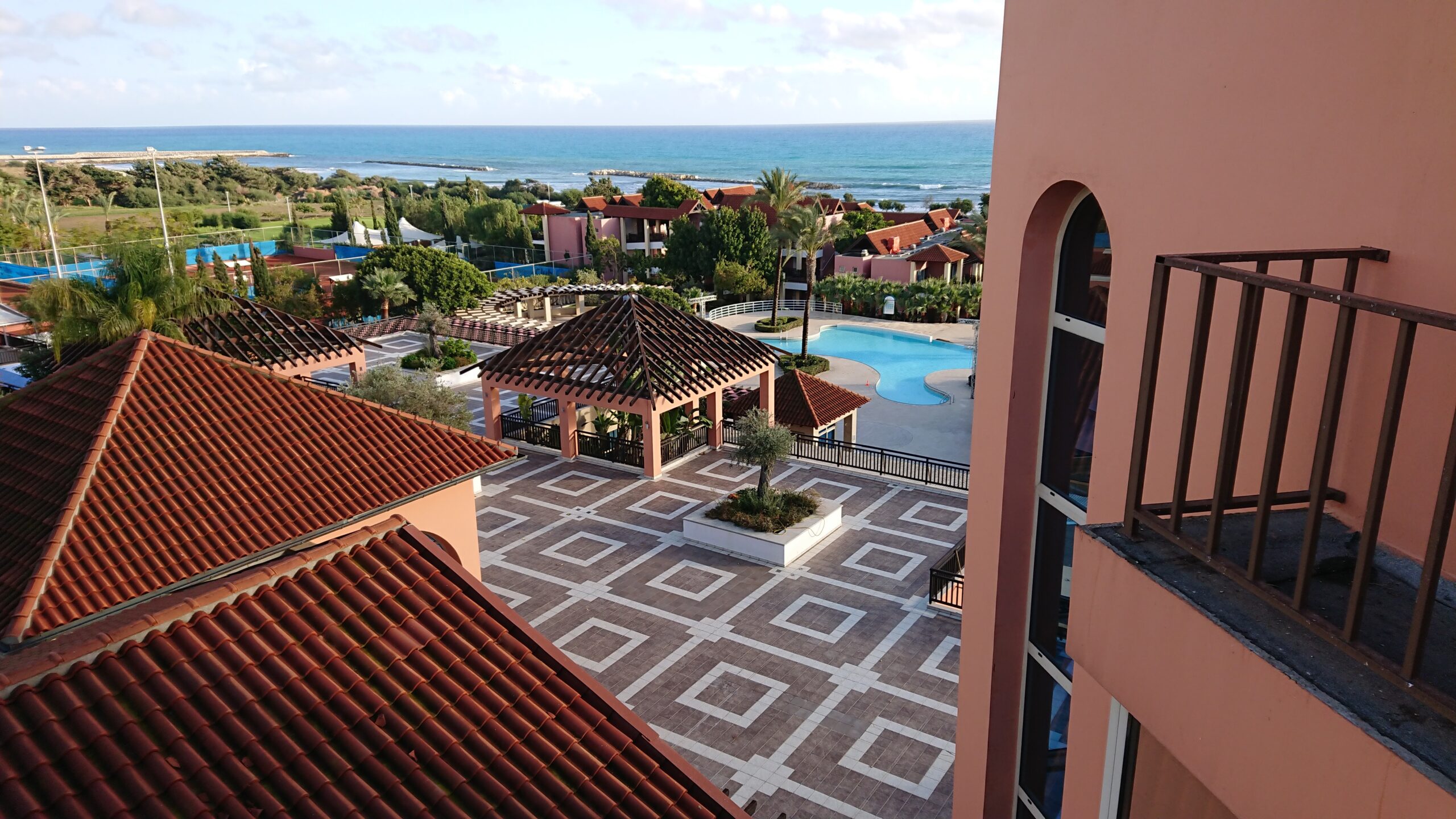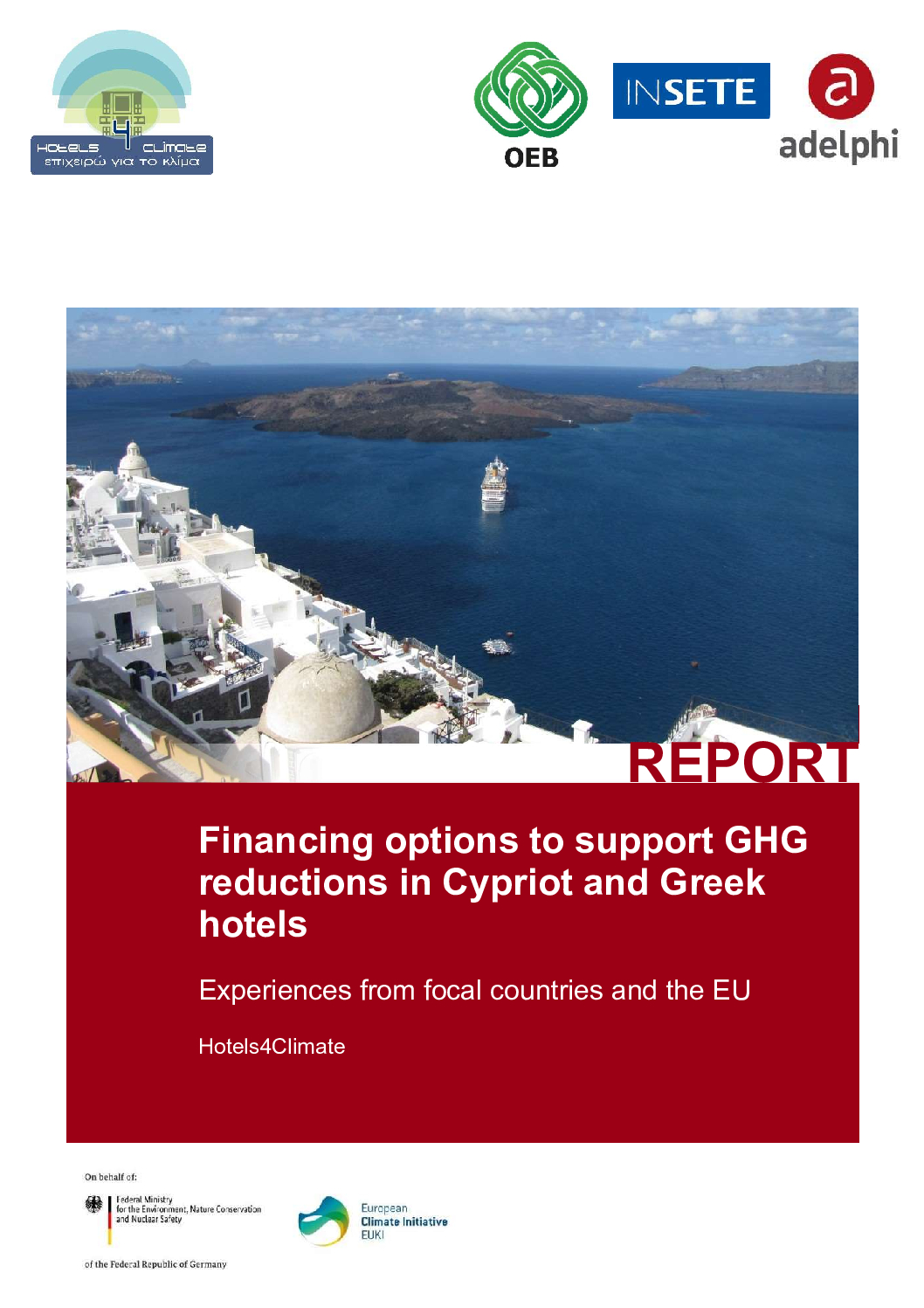Hotels4Climate
The project is completed. It focussed on promoting GHG reduction among hoteliers in Cyprus, Greece, and Germany by providing them with the necessary knowledge, tools, support, and capacity building.
Awareness Circular Economy Sustainable Economy Tourism

Project info
Cyprus, Germany, Greece
10/19 - 09/21
-
339,830.60 €
Contact info
Anthi Charalambous
-
- adelphi research gGmbH
- Institute of Greek Tourism Confederation (INSETE)
Project
The project aims to reduce GHG emissions caused by the hotel industry, focusing in particular on Cyprus and Greece. It does so through building capacity, raising awareness, and improving competences regarding saving potentials and suitable GHG reduction measures, as well as through facilitation of knowledge exchange and networking between the hotel and the finance sectors.
Over 23 months, the project includes seven measures to reduce GHG emissions in the long term. First, it promotes sustainable tourism. Second, it fosters cooperation opportunities between hotels and the financial sector. Third, it analyzes the characteristics of the hotel sector in Cyprus and Greece through structured interviews and summarizes the findings in a report. Fourth, it identifies and shares 40 best practice models from Cyprus, Greece, and Germany. Fifth, it raises awareness on the necessity and potential for GHG reduction through best practice workshops, capacity building, networking events, and three study visits in Cyprus, Greece, and Germany. Sixth, it provides access to knowledge products and showcases of best practices through an online information hub and a web-based tool for calculation and assessment of GHG emission reduction potential. Last, it encourages dialogues between the key actors and creates a common understanding of the importance of saving GHG as part of a green, sustainable tourism industry.

Background
Tourism represents one of the most important economic sectors for both Greece and Cyprus. This leads to higher energy demand and thus growing GHG emissions by the hotel industry. Although many accommodation providers have turned their attention towards GHG emission reduction, tourism accommodations, especially small and medium, remain with high potential for GHG emissions reduction. One important barrier is the lack of capacity in the hotel sector. Thus, the project aims to support these with relevant knowledge products.
By reducing GHG emissions caused by the hotel industry, the project contributes to the Cypriot and Greek national climate objectives to reduce GHG emissions in the non-ETS sectors by 24 and 16 per cent, respectively.
Last update: July 2024

